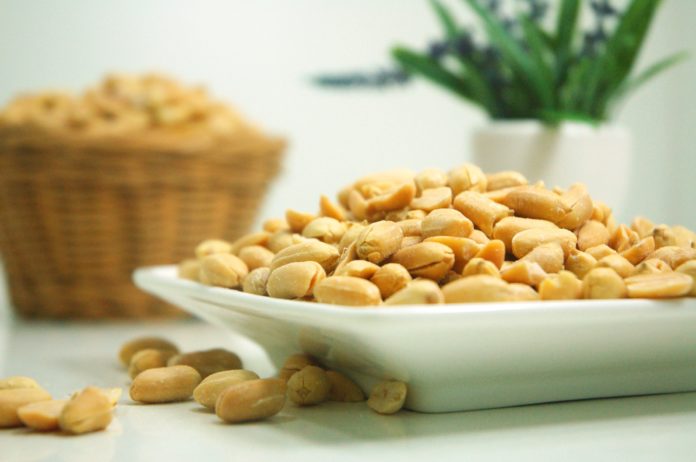The findings of a study from King’s College London suggest that early exposure may be an effective prevention strategy against peanut allergy
It is among the commonest allergies and new research now suggests that controlled exposure early on in life could protect against peanut allergy.
Feeding children peanuts regularly from infancy to age five reduced the rate of peanut allergy in adolescence by 71%, even after many years when the children ate or avoided peanut as desired, shows new research from King’s College London. The paper was published in the journal NEJM Evidence.
Lead investigator Professor Gideon Lack from King’s College London said: “Decades of advice to avoid peanuts has made parents fearful of introducing peanuts at an early age. The evidence is clear that early introduction of peanut in infancy induces long term tolerance and protects children from allergy well into adolescence. This simple intervention will make a remarkable difference to future generations and see peanut allergies plummet.”
The new trial builds on the results of the Learning Early About Peanut Allergy (LEAP) clinical trial and is called the LEAP-TRIO trial. In the first trial, half of the participants were asked to regularly consume peanut from infancy until age 5 years, while the other half were asked to avoid peanuts during that period. Researchers found that early introduction of peanut reduced the risk of peanut allergy at age 5 by 81%.
The investigators followed up both groups from age 6 to age 12 or older. In that period, children could choose to eat peanut in whatever amount and frequency they wanted. They found that 15.4% of participants from the early childhood peanut-avoidance group and 4.4% from the early childhood peanut-consumption group had peanut allergy at age 12 or older. These results show that regular, early peanut consumption reduce the risk of peanut allergy in adolescence by 71% compared to early peanut avoidance.
Professor George Du Toit, Co-Lead Investigator from King’s College London said: “This is a safe and highly effective intervention which can be implemented as early as 4 months of age. The infant needs to be developmentally ready to start weaning and peanut should be introduced as a soft pureed paste or as peanut puffs.”


